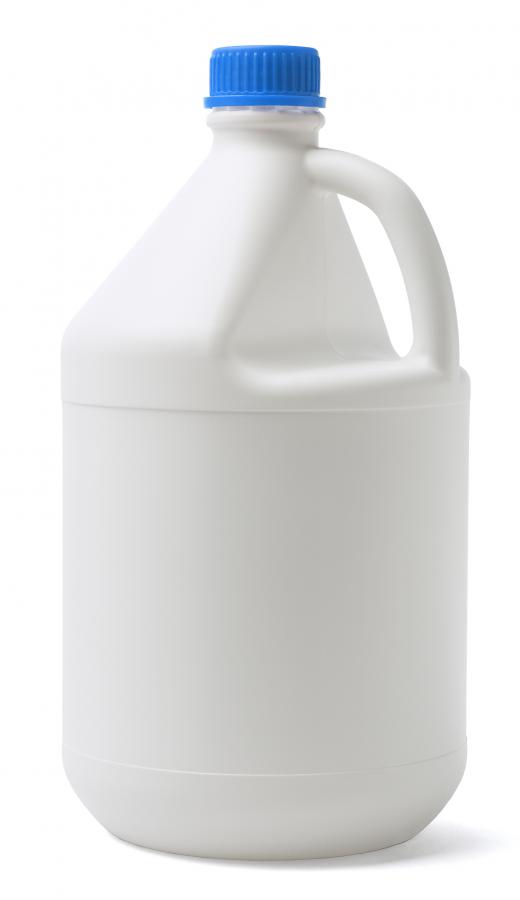What Is a Polymer Chemist?
A polymer chemist is a scientist who works to create, blend, and understand the chemical composition of various synthetic materials. Most synthetic materials — everything from durable plastic used in airplane and rocket siding to detergent and elastic — are made at least in part from polymers. Polymers are complex molecules that can be broken down and bound together to create new compounds. Experimenting with different polymer combinations and creating and testing new products is the bulk of a polymer chemist’s work.
The first polymer chemists focused the majority of their time and energy on polymer discovery. All polymers are naturally occurring molecules that can be isolated from various compounds. A polymer is essentially a chain of certain molecules that are joined together in a repeating pattern. Each molecule combination yields slightly different polymer characteristics.

These chemists spent time studying where polymers might be found, then discerned different chemical extraction processes for isolation. Scientists documented the polymers' composition, and worked on finding ways to put polymers to use in every day life. Nylon was one of the very first products made with polymers, and it owes its origins largely to the work of a polymer chemist team.

Today, almost all polymers have been identified. A modern polymer chemist is not typically concerned with discovering polymers, rather he spends his days finding new uses for those already known to exist. The substances can be combined with each other as well as broken down and reorganized to highlight or enhance certain properties.
Polymer composition is its own sector of chemistry studies, but it overlaps in many ways with the study of organic chemistry. Organic chemistry concerns the molecular interactions and structural compositions of a wide range of chemical reactions. The chemistry of polymers is complex, and a polymer chemist must have a solid foundation in this field in order to apply polymer organic chemistry with any success.
Understanding the chemistry of polymers helps scientists to maximize their benefits. Polymers are essential to most plastics and play very important roles in medical research. Gene therapy, prosthetics, and organ regeneration programs all depend on polymers. There are uses for the molecules in industry, too, including the manufacturing of durable tires and machine parts, as well as non-metal airplane siding and rocket casing.
Polymers are also essential ingredients in many consumer-oriented products. Antibacterial soap, bleach-based cleaning products, and spandex clothing, for instance, are all made possible because carefully selected polymers have been included in just the right proportions. It is a polymer chemist’s job to both identify how a specific polymer can be used, as well as to discern the practical ramifications and specifications of that use.
Most polymer chemist jobs are in research and development, usually within manufacturing corporations. These scientists help the company to develop new products and to improve on the range of products already on the market. Polymer chemistry research also happens in many national governments, particularly as relates to defense and security. Some also work in academia, conducting more fact-based research and teaching the polymer chemists of tomorrow.
AS FEATURED ON:
AS FEATURED ON:












Discuss this Article
Post your comments